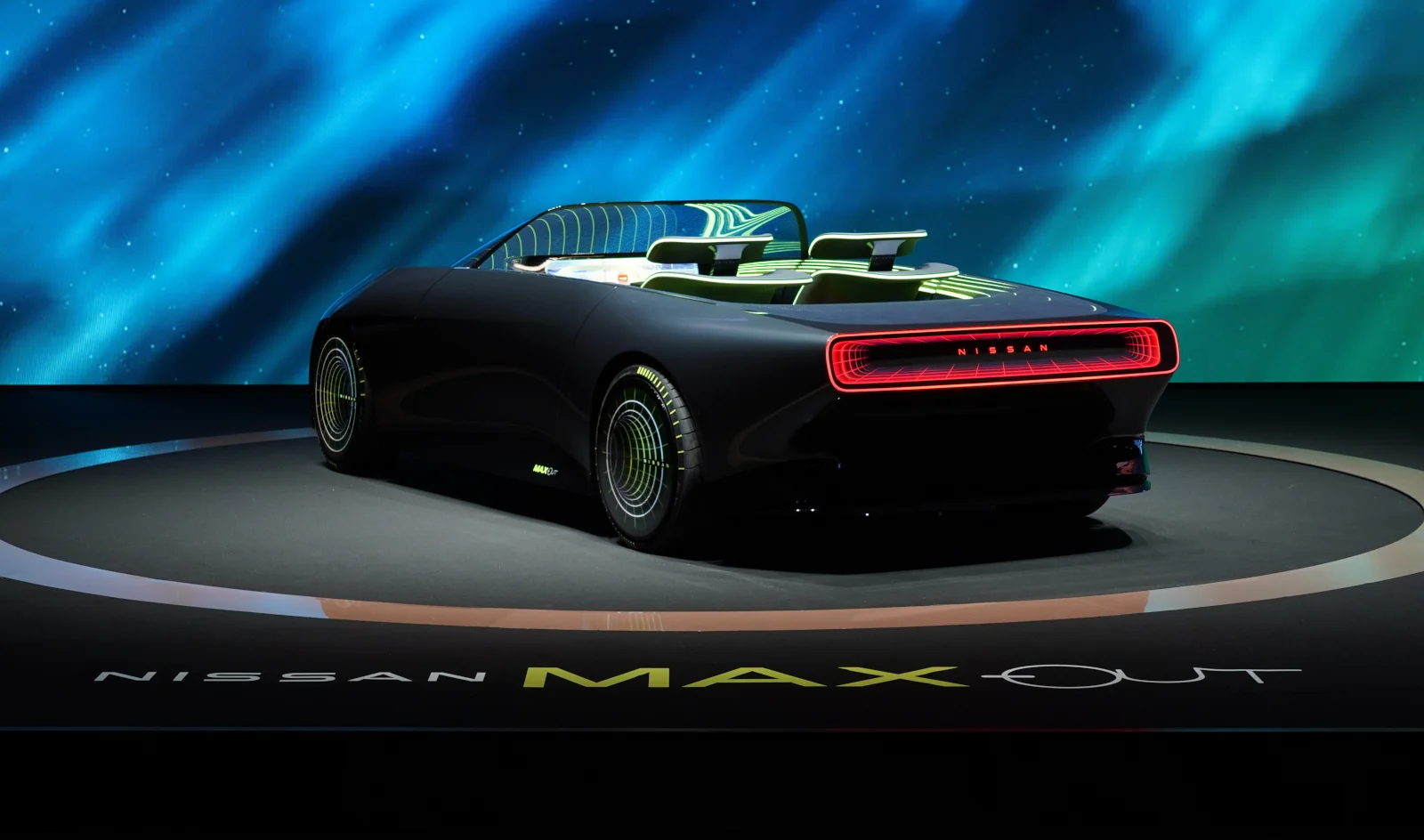The automaker first revealed the Max-Out as a computer render in 2021.
Back in 2021, Nissan revealed a few concept vehicles as part of its announcement that it was going to invest $17.6 billion in the development of electric vehicles over the next few years. One of the concepts it presented is a convertible two-seater sports car called the Max-Out, but the automaker only released a render that showed what it was supposed to look like. Now, the company has shown off a real-life physical version of the Max-Out at the launch of the Nissan Futures event in Yokohama, and it looks like the automaker stayed true to its original design.
It’s still a two-seater convertible with headlights and edges that light up in different neon colors. The EV’s design has the mixed aesthetics of several different sci-fi franchises, including Tron and Avatar. But other than showing what it looks like, Nissan hasn’t shared details about the EV concept, probably because it doesn’t have plans to create a production version of it anytime soon, if at all.

TORU HANAI/Engadget
When the company first unveiled the Max-Out, it vowed to develop 23 electrified vehicles and to launch 15 new EVs by 2030. It didn’t make a pledge to go fully electric by the end of the decade, but it did say that it was aiming for a mix of EVs and gas vehicles. In particular, it’s targeting a market mix of 75 percent electrified vehicles in Europe and 40 percent electrified in the US and China. One of the EVs it has released since its 2021 announcement is the Ariya, Nissan’s first electric crossover, which has an estimated range of 216 to 304 miles depending on the variant.
Nissan says the Futures event will showcase how it’s “shaping the future of sustainable mobility and innovative design” and how it’s preparing for “the various challenges and opportunities the coming large-scale transition to electric mobility will bring.” While the event will be held at the company’s global headquarters in Japan, Nissan will upload some panel recordings on its YouTube channel.
All products recommended by Engadget are selected by our editorial team, independent of our parent company. Some of our stories include affiliate links. If you buy something through one of these links, we may earn an affiliate commission. All prices are correct at the time of publishing.